from the editor
With much thanks to our incredible editors, it is my pleasure to introduce Volume 19, Issue 1 of the Colorado Technology Law Journal. As we continue our virtual lives in the “new normal,” we have seen firsthand the massive role of technology—with its importance and its impacts on full display. While I am grateful for the opportunities that technology has enabled this past year—Zoom School of Law, FaceTime Thanksgiving, and Mario Kart 8—the same technology that has allowed us to maintain productivity and connection has also perpetuated systemic issues that our country faces.
In this issue, Professor Casey Fiesler incorporates science fiction and imaginative approaches in technology and ethics pedagogy. Brittan Heller discusses the dangerous reality of online harassment and its connection to disinformation. Nicholas Nugent analyzes the phenomenon of DNS censorship, whereby registrars are increasingly suspending or canceling domain names associated with controversial, but legal, web content, and explains how property rights may be used to cabin the private regulatory power of DNS intermediaries over Internet speech. Richard Whitt proposes a new paradigm for the digital economy that prioritizes human autonomy and seeks to empower users in their online interactions.
Additionally, Slate Herman explores how international law is poised to deal with the ever-changing field of cyber attacks. Conor May examines Uber’s fraught relationship with antitrust and worker protection laws, and calls for uniform standards to more clearly define firm/market and employee/contractor boundaries. Brandon Ward documents frameworks for addressing job displacement caused by the rise of artificial intelligence.
I am grateful for our team’s resilience and persistence throughout this difficult period—with special thanks to Sara Yates, our Lead Articles Editor. This also would not have been possible without our faculty advisors, Professors Blake Reid and Harry Surden, and our journal manager, Jackie Koehn. Thank you as well to Amie Stepanovich and the Silicon Flatirons Center for hosting the Technology Optimism and Pessimism conference in February 2020. These pieces give us insight into tech pessimism—addressing topics that we will continue to debate. But importantly, they also serve to renew our optimism as we grapple with the challenges of society and technology.
Kelsey A. Fayer
Editor-in-Chief, Volume 19
